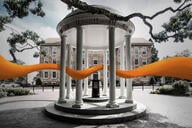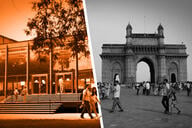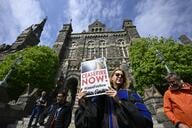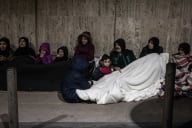You have /5 articles left.
Sign up for a free account or log in.
American colleges that have established branch campuses in the Middle East and Asia have regularly faced criticism for collaborating with authoritarian governments. Yet, the American colleges’ promise – either implicitly or explicitly made – is that their presence will have a liberalizing effect.
Yale University’s planned venture with the National University of Singapore was the most recent to come under fire, when Yale-NUS’s president, Pericles Lewis, told The Wall Street Journal that students wouldn’t be permitted to engage in political protests or form partisan political organizations. As is the norm with U.S. branch campuses, Yale has negotiated guarantees of academic freedom from the Singaporean government, but a tension inherent in its context is that faculty, students and staff will lack many of the political freedoms they are accustomed to in the West (For example, a 2009 Singapore law requires would-be activists to obtain a permit for any "cause-related activity," regardless of the number of people involved.)
To some critics, Yale has struck a Faustian bargain. "Yale is betraying the spirit of the university as a center of open debate and protest by giving away the rights of its students at its new Singapore campus," Phil Robertson, deputy Asia director for Human Rights Watch, said in a statement. "Instead of defending these rights, Yale buckled when faced with Singapore’s draconian laws on demonstrations and policies restricting student groups."
In addition to limiting the kinds of protests that are typical on American campuses, Singapore also restricts personal rights that may be taken for granted at universities such as Yale. For example, Singapore criminalizes gay sex. In April, the Yale College faculty approved a resolution urging Yale-NUS to "respect, protect and further principles of non-discrimination for all, including sexual minorities and migrant workers, and to uphold civil liberty and political freedom on campus and in the broader society."
"These ideals lie at the heart of liberal arts education as well as our civic sense as citizens, and they ought not to be compromised."
Kicked Out of the UAE
An American journalism professor receives glowing evaluations at Zayed University, in the United Arab Emirates, and then is suddenly asked to leave his position -- and the country.
Yet, Lewis, the Yale-NUS president, has defended the campus on the grounds that "progress depends on continued engagement and dialogue rather than retreat or insularity." In a statement, he emphasized the obligation to obey Singaporean laws but said that the new college will offer substantial opportunities for political engagement. He noted, for example, that NUS regularly hosts political forums featuring representatives from multiple parties. Furthermore, students interested in joining political parties will be free to do so, he said, but the organizations will be based off-campus
The debates over freedom at branch campuses typically focus less on classroom experiences than on non-classroom experiences, which are a key part of a residential, liberal arts education. Academic freedom unquestionably assures free inquiry in teaching, research and scholarly publication, but questions can arise when it comes to areas such as campus media, community service, internships and student organizations. Where’s the line between learning about politics and practicing it? In interviews, leaders of U.S. branch campuses describe free and critical inquiry in the classroom and diverse opportunities for civic and political engagement outside it, but overt political activism is near-absent.
Forms of 'Action'
When Yale-NUS opens, it won’t be the only branch campus that prohibits political protests: at New York University Abu Dhabi, protests are not allowed under university policy unless students have obtained permits from the relevant government authorities. (In two years of operation, there have not been any protests on the campus.) There are no political clubs akin to the College Democrats or Republicans on NYU Abu Dhabi’s campus either, although there is an environmental group and a club that works with local humanitarian organizations.
"To date, the exploration of topical issues has taken the form of serious discussion and debates that seek to produce constructive solutions, as opposed to organized marches, rallies, or other protests," said Josh Taylor, NYU Abu Dhabi’s associate vice chancellor for public affairs and community relations. Past lectures and events at NYU Abu Dhabi have covered such topics as Emirati women and social change and the Arab Spring protests in Egypt.
"Having spent two years in Abu Dhabi, I have come to realize that some of the tactics that might work to propel change in other countries would not be nearly as effective in the Emirates," said Laith Aqel, a junior at NYU Abu Dhabi. "True betterment can be achieved only in partnership with the government. It is one thing to stand in the streets chastising the regime for perceived wrongdoings and another to work actively in conjunction with the authorities to redress grievances and improve society for all its inhabitants.”
Gerd Nonneman, dean of Georgetown University’s School of Foreign Service in Qatar, described his students’ involvement in a wide range of activities, from internships at the Brookings Doha Center to the Model United Nations to a campus magazine, called Diwan. (The first issue’s theme was “revolution.”) Students have formed a Middle Eastern Studies Students Association, which held its inaugural conference last year. Georgetown also hosts the Doha Debates, which take as their tagline "Qatar’s forum for free speech in the Arab world."
When asked specifically about the issue of partisan organizations and protests, Nonneman responded, via e-mail, "There aren't any party-political organizations on campus – just as there aren't any in Qatar. Given the multinational nature of the student body (some 46 nationalities) it is hardly surprising that they don't re-create their home political affiliations and bodies here. But that doesn't mean there isn't 'political' activity and symbolism in other ways. Indeed, similarly, there don't need to be formal organized ''protests' for there to be other ways of 'reacting' politically, or socially, in ways that are more subtle than the questions suggest."
Nonneman said that students have protested on and off campus against the shelling of Gaza and in sympathy with the Arab Spring protests in Egypt and Syria. (He said, however, that the protests didn’t take the form of organized marches, but instead involved discussions, collections for charitable causes, and social networking.) Students have also participated in programs on migrant labor – "one of the most politically sensitive issues in Qatar."
"Finally, it is worth considering that our students' very enrollment at [Georgetown], an American liberal arts school with a Jesuit identity, might be seen as a form of 'action' in a highly conservative society," Nonneman said. "Their presence at SFS-Q, where we discuss autocracy, democracy, equality, social justice, belief and unbelief is arguably more significant than superficial party-political student activity."
Asking Questions
Student journalism, meanwhile, occupies something of a nebulous space, since by its nature instruction cannot be confined to a classroom. In journalism education, academic freedom blurs with issues of press freedom.
"It’s fairly easy to understand what academic freedom means from the point of view of a professor. I’m not sure how it might apply to a student," said Richard J. Roth, senior associate dean at Northwestern University’s journalism school in Qatar. Reporters Without Borders ranks Qatar 114th out of 179 countries worldwide in terms of press freedoms (by comparison, the United States ranks 47th): Article 48 of Qatar’s constitution guarantees press freedom ("in accordance with the law"), but the 1979 law governing the press includes broadly worded restrictions. Defamation is punishable with imprisonment and self-censorship among journalists is common.
"We have had students in trouble," Roth said, who explained that a a handful of students have been detained by police or security guards for things like taking a picture of the Libyan embassy, or of the Amiri Diwan, the seat of government. (All were quickly released.)
"There are security issues, but the students haven’t gotten in trouble for anything they have written or anything they’ve posted in the school publication," Roth said. The campus newspaper, The Daily Q, mostly covers campus happenings: it doesn’t include much by way of critical coverage of the college administration and lacks the political opinion columns that The Daily Northwestern, for example, features. However, Roth pointed to a student-produced website about traffic fatalities in Qatar as emblematic of the kind of journalism students can produce about broader social problems. Students have also published videos on such subjects as domestic abuse in Qatar and the taboo against talking about breast cancer.
It’s fair to say that the students aren’t writing political exposés, but their professors say they are able to tackle important social issues, including those involving migrant workers. For example, Janet Key’s enterprise reporting class takes as its classroom a hotel meeting room in Musherib, a historic Doha district home to large numbers of migrant workers; the neighborhood is currently undergoing large-scale demolition and development. Students have written stories on such topics as substandard housing conditions, the eviction of shopkeepers from a souk, the closure of a mosque, inadequate health care, and laws that serve to isolate the foreign workers – predominantly South Asian men -- from Qataris.
The students’ articles are published on a website only accessible to users on the Northwestern server. Key said this is due to a desire to protect the students’ sources – foreign workers who are terrified that a wrong word will get them deported – but she is considering making the website for next spring’s class freely available. The class has run for three years now, and Key said residents are beginning to grow accustomed to the student reporters.
"It’s fascinating to watch the area of Musherib evolve, as they get to know that people are going to be coming around asking questions," said Key, an assistant clinical professor of journalism.
"The whole culture of journalism is new in Doha," said Asma Ajroudi, formerly a student in Key’s class and a junior journalism major. "It’s really unusual for a bunch of girls to carry around cameras and notepads and ask questions of random guys on the street."
As a reporter in Qatar, Ajroudi has been screamed at, hidden from, stalled, hassled by security guards, and mistaken for a prostitute. "You’re [seen as] someone not to be trusted," she said. Ajroudi described the immense difficulty she encounters in getting sources to go on the record for publication – not only the foreign workers, but also government officials and Qatari nationals, who have strong notions of privacy. She said she’s usually only able to obtain interviews if she promises her sources that the article will be for her professor’s eyes only.
"I can write about everything," she said, "but I can’t share it."




